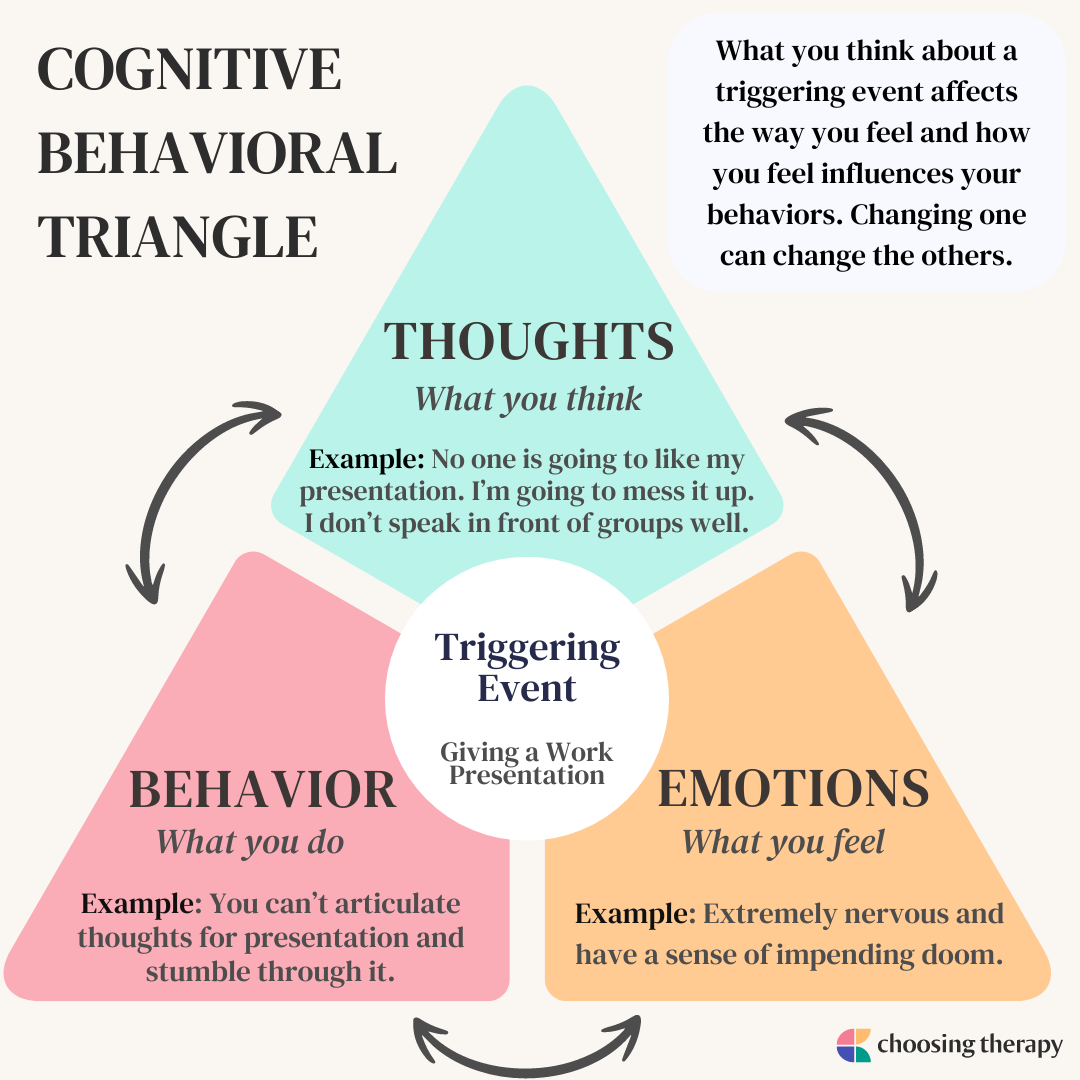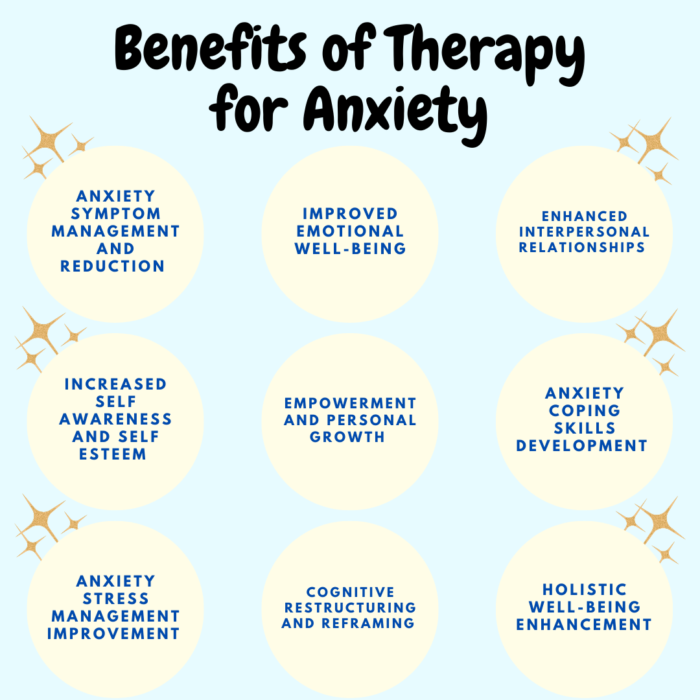Discovering Different Techniques in Counselling for Stress And Anxiety Condition for Enduring Change
When tackling stress and anxiety problems, it's necessary to discover a variety of therapy methods. Each approach uses unique understandings and tools to aid you handle your signs properly. You may discover that integrating strategies can generate the very best results. However, recognizing the nuances of these techniques is vital to fostering enduring modification. What if the best mix could launch a new degree of emotional well-being for you?
Understanding Stress And Anxiety Problems: A Short Introduction
Anxiousness problems, which influence numerous people worldwide, can greatly influence day-to-day life. You might experience frustrating sensations of concern or worry that appear unmanageable. These sensations can result in physical signs and symptoms like an auto racing heart, sweating, or also lightheadedness. Common types of anxiety problems consist of generalized anxiousness condition, panic condition, and social anxiousness condition. Each has special indications, yet they all share a tendency to disrupt your routine and relationships.Understanding the origin of your anxiousness is important. It could stem from genetics, brain chemistry, or life experiences. Recognizing your triggers can help you handle your responses better. It's essential to bear in mind that you're not the only one in this struggle. Many individuals face comparable challenges, and looking for aid is a solid action towards feeling better. By learning more about stress and anxiety disorders, you're already on the course to understanding and handling your problem better.
Cognitive-Behavioral Treatment: Testing Negative Thought Patterns

Recognizing Adverse Thought Triggers
When you experience moments of distress, recognizing the particular triggers behind your unfavorable thoughts can be vital in handling stress and anxiety. Begin by focusing on scenarios that prompt sensations of concern or worry. Is it a jampacked space, a future deadline, or a discussion with certain individuals? Write down these circumstances in a journal. This will certainly help you recognize patterns in your reasoning. Also, notification physical feelings that accompany your unfavorable thoughts, like a racing heart or rigidity in your upper body. By identifying these triggers, you gain understanding right into what's fueling your anxiety. Recognizing these links is the very first step in testing those thoughts and ultimately restoring control over your emotional feedbacks.

Changing Ideas With Positives
Challenging unfavorable idea patterns is an important action in transforming your way of thinking and reducing stress and anxiety. You might usually discover on your own caught in cycles of insecurity or devastating reasoning. Rather than letting these thoughts determine your feelings, method changing them with practical options or positive affirmations. When you think, "I can not handle this," change it to, "I can handle obstacles one step at a time." This easy adjustment can greatly affect your emotional state. Frequently determining and countering these unfavorable thoughts aids produce a healthier inner discussion. Keep in mind, it takes some time and initiative, but constantly practicing this strategy can result in long-term change, encouraging you to face stress and anxiety with restored confidence and strength
Building Coping Techniques With Each Other
Replacing negative ideas is just the beginning of handling anxiousness efficiently. To produce long-term change, you need to construct coping strategies that encourage you. Cognitive-Behavioral Therapy (CBT) aids you determine and test those unhelpful thought patterns. With each other, you and your counselor can discover just how these thoughts effect your sensations and behaviors.Start by creating practical techniques, like journaling or mindfulness exercises, that enable you to face anxiousness head-on. When you encounter your anxieties progressively, you'll find out to react in a different way.

Mindfulness and Acceptance-Based Approaches: Growing Present-Moment Awareness
As you browse the intricacies of anxiousness, incorporating mindfulness and acceptance-based techniques can substantially enhance your ability to cultivate present-moment awareness. By concentrating on the present moment, you'll discover that you can observe your ideas and sensations without judgment. This practice helps you acknowledge your stress and anxiety without really feeling bewildered by it.Engaging in mindfulness workouts, such as deep breathing, body scans, or directed reflections, permits you to ground on your own in your present experience. Acceptance-based approaches urge you to welcome your emotions instead than deal with versus them. When you accept your feelings, they shed their power over you.Incorporating these methods into your day-to-day regimen can transform how you react to anxiousness. You'll develop resilience and learn to navigate difficult situations with greater simplicity. Eventually, cultivating present-moment understanding lays the structure for lasting adjustment, equipping you to lead an extra satisfying life.
Exposure Treatment: Confronting Concerns Gradually
Direct exposure therapy aids you face your worries in a steady method, making it less frustrating. You'll learn methods to face anxiety-provoking scenarios detailed, while additionally developing coping techniques to manage your responses. This technique empowers you to take control and reduce anxiousness with time.
Steady Direct Exposure Strategies
When encountering stress and anxiety, slowly facing your worries can be an effective means to gain back control. This method, known as progressive direct exposure, involves slowly revealing on your own to the situations or items that cause your anxiety. Start with less daunting scenarios and slowly function your way as much as even more challenging ones. For example, if you're worried of public speaking, you may start by speaking before a mirror, after that progress to sharing ideas with a pal, and ultimately deal with a little group. Each action helps desensitize you to the concern, constructing your self-confidence with time. Keep in mind, it's important to rate yourself and commemorate small triumphes as you move with this process, enhancing your capability to take care of stress and anxiety effectively.
Structure Coping Strategies
Building reliable coping methods is essential for taking care of anxiousness, especially as you confront your anxieties progressively. One effective approach is exposure therapy, where you start by encountering your anxieties in a controlled fashion. Start with less daunting situations and gradually work your means approximately more challenging circumstances. This progressive direct exposure aids desensitize you to anxiousness causes, making them much less overwhelming.Incorporate leisure strategies, such as deep breathing or mindfulness, to calm your mind during direct exposure. Track your progression, commemorating tiny success along the way to boost your self-confidence. Bear in mind, it's alright to take your time; the goal isn't excellence however steady renovation. By developing these strategies, you'll encourage yourself to navigate anxiousness and welcome life a lot more fully.
Psychodynamic Therapy: Uncovering Source of Stress And Anxiety
Psychodynamic treatment checks out the subconscious mind, disclosing the source of your stress and anxiety - Counseling services for anxiety. By analyzing your ideas, feelings, and previous experiences, this technique helps you discover underlying conflicts and unsettled concerns that may add to your present anxiety. You'll collaborate with a therapist to investigate childhood years experiences, connections, and emotional patterns that form your feedbacks today.As you obtain insight into these deeper layers of your psyche, you'll start to acknowledge exactly how previous occasions influence your present habits. This understanding can lead to catharsis, enabling you to refine emotions you may have suppressed.Through the therapeutic relationship, you can likewise recognize defense reaction that might have developed over time, offering a clearer course to transform. Ultimately, psychodynamic therapy equips you my sources with the devices to address your stress and anxiety at its core, promoting long lasting improvement in your emotional well-being
Integrative and Alternative Approaches: Incorporating Methods for Greater Effectiveness
Incorporating different restorative methods can improve official site your journey toward handling anxiousness extra properly. By incorporating components from cognitive-behavioral therapy, mindfulness practices, and alternative approaches, you can develop a tailored method that addresses your one-of-a-kind needs. For circumstances, you might make use of cognitive-behavioral methods to test unfavorable thought patterns while including mindfulness exercises to ground on your own in the existing moment.Additionally, checking out holistic methods such as yoga or meditation can advertise leisure and decrease anxiousness signs. This blend permits you to develop higher self-awareness and resilience.Experimenting with these varied methods can assist you discover what resonates most with you. Keep in mind, it's concerning finding a synergy that works, instead of adhering to a single approach. This integrative technique not just provides instant alleviation yet additionally fosters lasting abilities for managing stress and anxiety, equipping you to redeem control over your life.
The Function of Support Systems: Structure Strength Through Connection
While it might seem that managing anxiousness is a solitary trip, having a solid support group can play a vital role in your durability. Bordering yourself with compassionate good friends, household, or support system produces a risk-free area where you can honestly share your experiences and sensations. You remind yourself that you're not alone in this struggle.These partnerships use support and can give practical coping approaches that have actually worked for others when you attach with others. It's also a chance to obtain point of view; good friends can assist you see scenarios in different ways, lowering sensations of isolation.Moreover, emotional assistance fosters a feeling of belonging, which can considerably minimize anxiety signs and symptoms. By leaning on your support group, you can construct durability and tackle obstacles better. Remember, connecting for help is an indicator of stamina, and it can make all the distinction in your journey toward taking care of stress and anxiety.
Regularly Asked Concerns
What Are the Usual Symptoms of Anxiety Conditions?
You could experience restlessness, tiredness, trouble concentrating, irritation, muscle tension, and rest disturbances. Physical symptoms can consist of rapid heartbeat, sweating, and shivering. Identifying these indicators early can assist you look for appropriate support and therapy.

For How Long Does Treatment Typically Last for Stress And Anxiety Problems?
Treatment for anxiety conditions normally lasts anywhere from a couple of weeks to click for source numerous months. It actually relies on your individual needs, progress, and the methods your therapist makes use of to help you manage your anxiety efficiently.
Can Medicine Be Used Together With Therapy for Stress and anxiety?
Yes, medicine can absolutely be used alongside therapy for anxiety. Combining both approaches frequently boosts treatment performance, aiding you take care of signs and symptoms while exploring underlying issues through therapy. Constantly consult your health care copyright for individualized suggestions.
Exist Self-Help Techniques for Managing Anxiety?
Yes, there are a number of self-help approaches for handling stress and anxiety. You can practice mindfulness, participate in normal exercise, maintain a well balanced diet plan, establish a regular, and utilize deep breathing techniques to aid minimize anxiety signs and symptoms properly.
How Do I Know if I Required Expert Help for Anxiousness?
You need to consider looking for specialist assistance for stress and anxiety if it disrupts life, triggers significant distress, or if self-help strategies aren't working. Trust your reactions; connecting can result in much better coping abilities and assistance. Common types of anxiety conditions include generalised anxiety condition, panic disorder, and social anxiousness condition. When you run into moments of distress, acknowledging the details triggers behind your adverse thoughts can be crucial in handling anxiety. Changing unfavorable thoughts is just the beginning of managing anxiousness properly. By analyzing your thoughts, feelings, and past experiences, this technique assists you reveal underlying disputes and unsettled issues that might contribute to your existing anxiety. It's additionally a possibility to gain perspective; close friends can assist you see scenarios in a different way, lowering sensations of isolation (Counseling services for anxiety).Moreover, psychological support fosters a sense of belonging, which can substantially reduce stress and anxiety symptoms